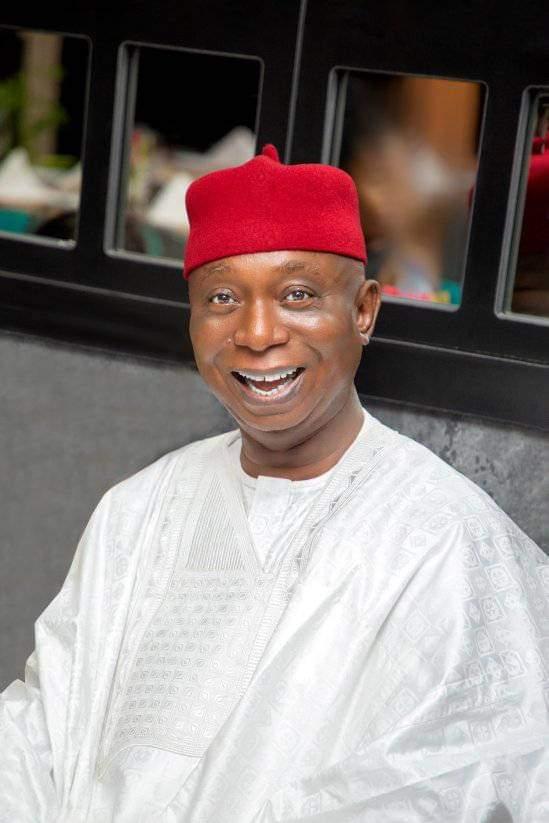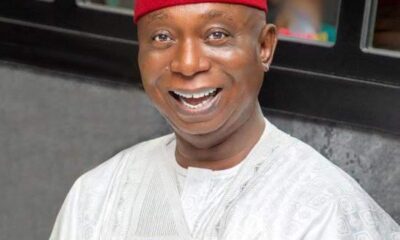Health
Public Officials Should Patronise Only Govt Health Facilities – Senator Nwoko

Senator Ned Nwoko (PDP–Delta North) has called for the upgrade of all Federal Medical Centres(FMCs) to international standards insisting that all public officials should be made to seek medical treatment exclusively within the nation’s healthcare facilities.
Nwoko, who made the call in interview with the News Agency of Nigeria (NAN) on Monday in Abuja.
He said that the state of healthcare infrastructure in Nigeria was crucial to the well-being of its citizens as adequate healthcare was a fundamental human right and essential for societal development.
The lawmaker also said that the current challenges faced by the Nigerian healthcare system, including but not limited to insufficiently equipped hospitals, inadequate staffing, and limited access to critical medical services, hindered the provision of comprehensive and timely healthcare.
Nwoko said there was need for the Federal Government to initiate a comprehensive programme aimed at upgrading every federal medical hospital in each state to international standards within a stipulated time frame.
Nwoko harped on the need to establish fully equipped Accident and Emergency (A&E) units, radiology departments, and all critical healthcare departments necessary for an advanced hospital.
He also urged the Federal Government, through the Ministry of Health, to ensure the appointment of competent consultants to head each department within the upgraded hospitals to guarantee the delivery of high-quality healthcare services.
The lawmaker further implored the Federal Government to implement a special salary and contract scheme for a 10-year period, to attract, retain and incentivise the best talents to serve within the upgraded hospitals.
He also called on the Nigerian Senate committee on Ethics, Privileges, and Public Petitions to enforce a policy mandating all public servants to seek medical treatment exclusively within Nigerian healthcare facilities to promote confidence in the nation’s healthcare system.
“The committee should also put in place strict regulations to prohibit doctors and consultants serving in these federal hospitals from owning or operating private healthcare facilities anywhere in the country to prevent potential conflicts of interest and maintain focus on public healthcare provision.
“The Senate Committee on Health will implore diligent oversight and proactive measures to ensure the effective implementation of this policy.’’
Nwoko expressed worry that presently, medical tourism stood as a thriving industry, and Nigeria faced significant losses due to this trend.
According to him, studies indicate that Nigerians expend between 1.5 billion dollars to 2 billion dollars annually on medical tourism, particularly for heart diseases, kidney diseases, cancer, and various other medical conditions.
“The situation could deteriorate further with the nation’s expanding population, potentially overwhelming already fragile healthcare systems, unless immediate measures are taken to enhance healthcare quality.’’
According to him, the healthcare structure mandates that Local Governments offer primary healthcare, state governments provide secondary healthcare, and tertiary healthcare falls under the responsibility of the Federal Government.
“To operationalise this policy, the Federal Government established one tertiary health institution in each state of the Nigerian Federation.
“A total of 22 FMCs were set up nationwide in states lacking Federal University Teaching Hospitals. Notably, Lagos State stands as an exception with one such center, in addition to its Teaching Hospital.
“However, these tertiary hospitals have received widespread public criticism due to subpar services and inadequate infrastructure.
“These facilities suffer from a lack of essential equipment necessary to handle critical medical situations such as accident and emergency care, complex surgeries, major trauma, organ transplants, neurological emergencies, critical heart conditions, and other severe medical cases,’’ he said.
The lawmaker also noted that hospital administrators lamented the shortage of personnel, exacerbated by unreliable electricity from the national grid, insufficient government funding and bureaucratic obstacles hampering staff recruitment and training.
Nwoko said that the dire situation starkly contrasted with the global best in medical practice. (NAN)
Send Us A Press Statement Advertise With Us Contact
And For More Nigerian News Visit GWG.NG



